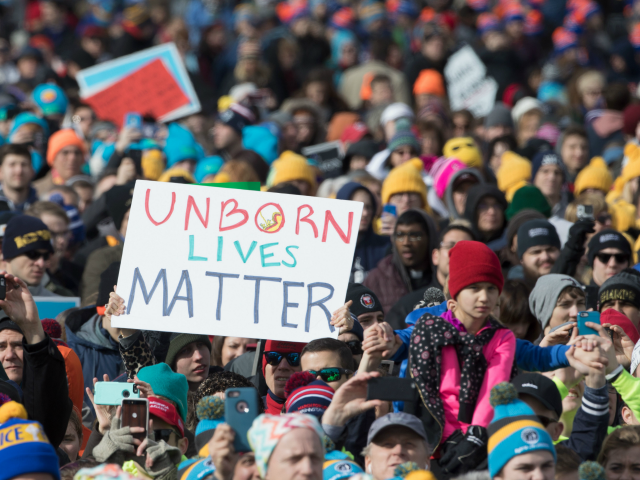Florida Attorney General Ashley Moody (R) and various groups have asked the state’s Supreme Court to prevent an initiative that would declare a supposed “right” to abortion in the state constitution from being placed on the ballot in 2024.
Moody and pro-life groups have also asked the Florida Supreme Court to schedule oral arguments on the matter, noting the case “presents important questions about the validity of a ballot initiative to amend the Florida Constitution to provide a right to abortion,” according to a Tuesday Florida Phoenix report.
“The attorney general respectfully submits that oral argument would enhance the Supreme Court’s consideration of the issues to be raised … which include whether the proposal meets the requirements for placing a citizens’ initiative on the ballot,” the motion reportedly reads.
One of Moody’s main concerns is the measure’s use of the term “viability,” which she says could have several meanings and confuse voters.
In an October op-ed for Florida’s Voice, she wrote:
First, it means whether a pregnancy is expected to continue developing normally through delivery. Doctors can tell during the first trimester, usually around about 12 weeks, whether a pregnancy is viable and would have a much lower risk of miscarriage. For that reason, many women often wait to tell family and friends about their pregnancy until that time.
Second, viability is sometimes used to mean whether a baby can survive outside of the uterus, which currently is around 21 to 25 weeks of pregnancy. The two time periods, depending on your definition of viability, are starkly different, and the procedures performed to abort a baby’s life at either time period are dissimilar.
“The sponsor has gone so far attempting to deceive Floridians as to not post any information on its website on what it means by viability and when the right to abortion, which it is attempting to enshrine in our Constitution, ends,” she said.
“While I personally would not vote for this initiative no matter what definition of ‘viability’ it was using, I know that to some voters, it is material to their vote – whether you are talking about an abortion in the first trimester or at the end of the second trimester,” she continued. “Floridians are entitled to know clearly and concisely what they are voting for or against.”
Floridians Protecting Freedom, a coalition of left-wing groups including Planned Parenthood and ACLU of Florida, is the initiative’s main sponsor. The language of the initiative states: “Except as provided in Article X, Section 22, no law shall prohibit, penalize, delay, or restrict abortion before viability or when necessary to protect the patient’s health, as determined by the patient’s healthcare provider.”
The cited provision allows the state legislature to require parental notification before a minor has an abortion, with the option of a child asking a judge to grant permission.
The coalition filed response briefs on Monday to Moody’s challenge, arguing that the ballot language is not misleading.
“For nearly fifty years—until last year—government interference with abortion before viability was limited,” Floridians Protecting Freedom wrote. “Voters can be trusted to know what it would mean to live in a world limiting government interference with abortion before viability.”
By Monday, the coalition had collected more than 491,000 signatures of the 891,523 needed to place the measure, called the “Amendment to Limit Government Interference with Abortion,” on the ballot, WFLA reported.
“However, the number of signatures collected is already enough to qualify it for ballot summary review by the Florida Supreme Court,” the report states.
The amendment, if it makes it on the 2024 ballot, would require 60 percent of voters to approve in order to take effect.
Florida Gov. Ron DeSantis (R) notably signed a six-week abortion limit in April of 2023, replacing the state’s previous 15-week limit. The law makes exceptions for the woman’s life or health and in cases of rape and incest under certain conditions.

COMMENTS
Please let us know if you're having issues with commenting.